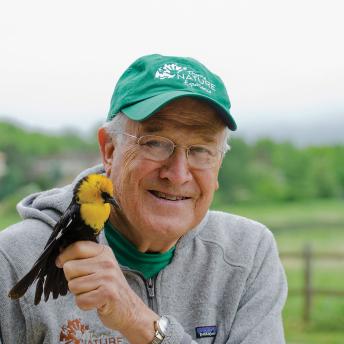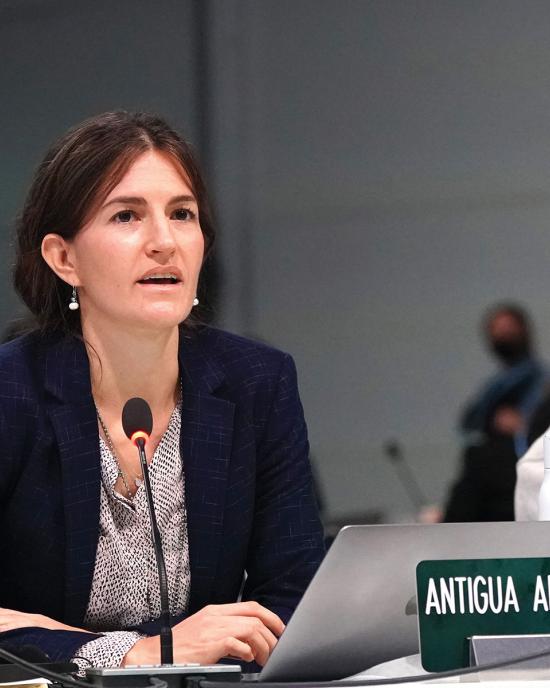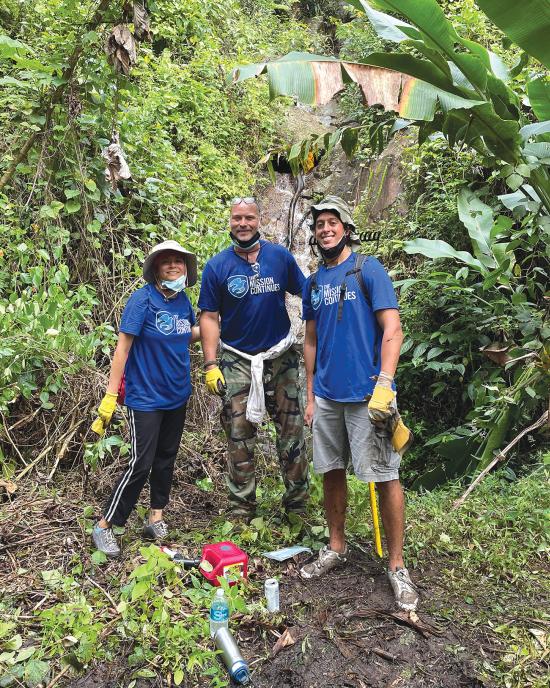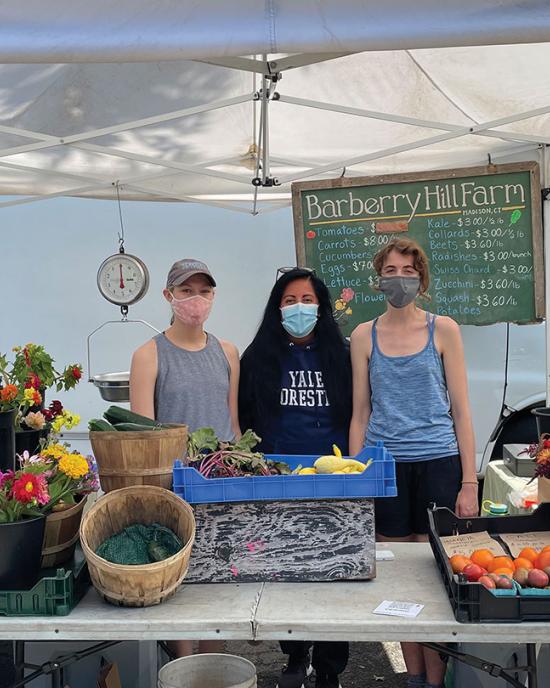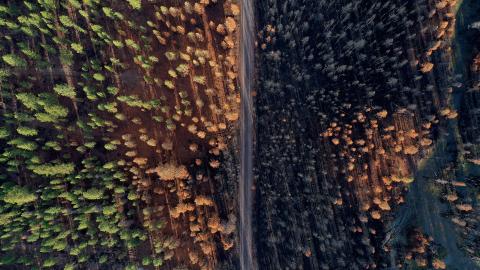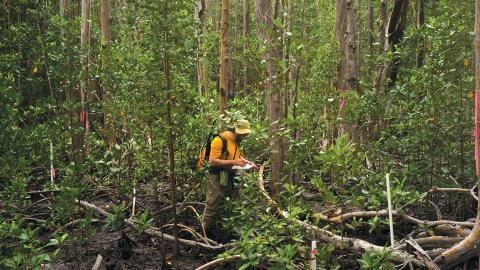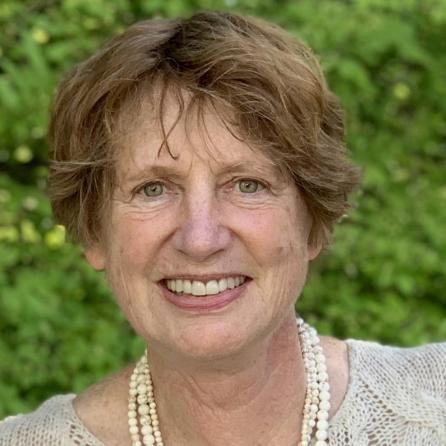
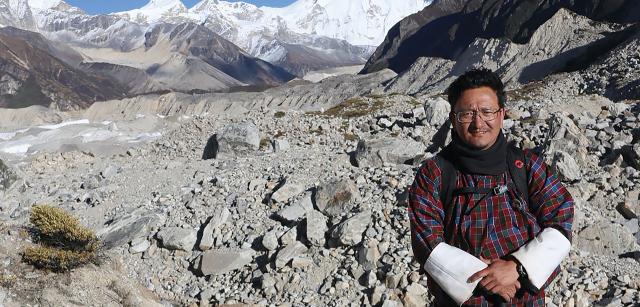
Dechen Dorji ’01 MEM
2021 YSE Alumni Association Award Winners
From Bhutan’s national parks to Brazil’s tropical forests to U.S. college campuses, 2021 YSE Alumni Association Award winners — Dechen Dorji, Daniel Piotto, and Nan Jenks-Jay — are making a difference for the health of our planet.
Sustaining the Financing to Preserve Bhutan
Dechen Dorji ’01 MEM, who was an international student at Yale from Bhutan, began his conservation work in the country’s remote eastern region and soon started playing a key role in the country’s constitutional mandate to remain carbon neutral for its entire existence.
Dorji came to Yale after meeting YSE’s Frederick C. Hixon Professor Emeritus of Natural Resource Management William Burch, who was working in Bhutan. After graduation, Dorji returned to his country to work on community forestry and helped lead efforts to preserve its forest cover, which sequesters about three times more carbon dioxide than the country’s total population of about 800,000 emits. He helped raise $40 million for the sustainable financing of Bhutan’s park system under the Bhutan for Life initiative.
As the World Wildlife Fund’s senior director for the Asian Wildlife Program, Dorji continues to work on land preservation and the protection of endangered and threatened species. More about Dechen Dorji
Reducing the Carbon Footprint on College Campuses

In her more than 20 years in higher education, Nan Jenks-Jay ’86 MESc has been a leading voice for environmental education and sustainability in higher education, catalyzing environmental programs around the country and globally.
During her time at Yale and graduate school, Jenks-Jay says attending lectures by visionary leaders, studying collections at the Peabody Museum, and reviewing rare works at the Beinecke Library helped influence her career (and life) trajectory.
“I was truly influenced by faculty whose research and publications were cross-disciplinary with other scholars. Subsequently, collaborations became the foundation of my work,” she says. “I gained the confidence to be a calculated risk taker, moving bold ideas ahead with diplomacy and perseverance.”
In 1998, she was appointed dean of environmental affairs at Middlebury College — a position she would hold for the next 23 years. It was there that she hit her stride.
Middlebury began to reduce its carbon footprint in 2001 and set an initial goal to lower all carbon emissions to 8% below 1990 levels by 2012. With Jenks-Jay’s help and support from students, Middlebury reached carbon neutrality in December 2016.
“I think you have to look for opportunity because just like inspiration, it’s out there,” she says. “You need to watch trends and be a predictor and forecaster as opposed to a reactor. Because if you’re a reactor, you’re already behind the game.” More about Nan Jenks-Jay
Fighting to Save Brazil’s Tropical Forests
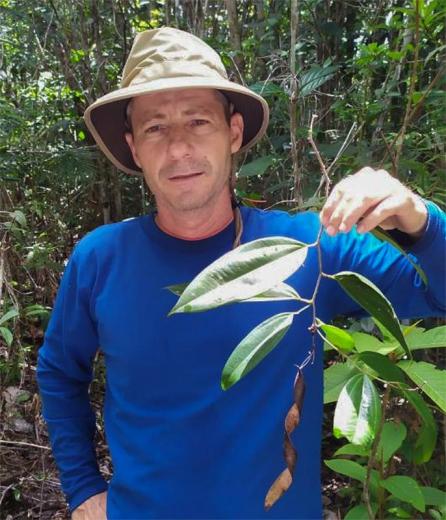
Daniel Piotto ’06 MF, ’11 PhD first met renowned forestry professors Mark Ashton, Morris K. Jesup Professor of Silviculture and Forest Ecology and senior associate dean of The Forest School, and Florencia Montagnini, senior research scientist, while earning his master’s degree in forest management at Centro Agronómico Tropical de Investigación y Enseñanza in Costa Rica. They were working on what would become YSE’s Environmental Leadership & Training Initiative (ELTI).
That first meetup convinced Piotto to apply to YSE — a decision that ultimately led to a master’s degree, a doctorate, and YSE-supported trips to forests across the world that expanded his knowledge of different forest biomes and how to manage forest resources. He recently has led studies on forest restoration and plantation forests in the Bahia region of Brazil and is hoping his work in forest restoration and plantation forestry can help counter devastating tree loss and fires in one of the country’s “last frontiers.”
“I’ve dedicated my life to studying this, so I remain optimistic. These forests can grow back,” says Piotto. “I’m not optimistic that people are going to change their behavior in the short term, so now we ask, ‘How can we adapt?’ Planting trees, managing these forests — that is going to be a very important component.” More about Daniel Piotto

